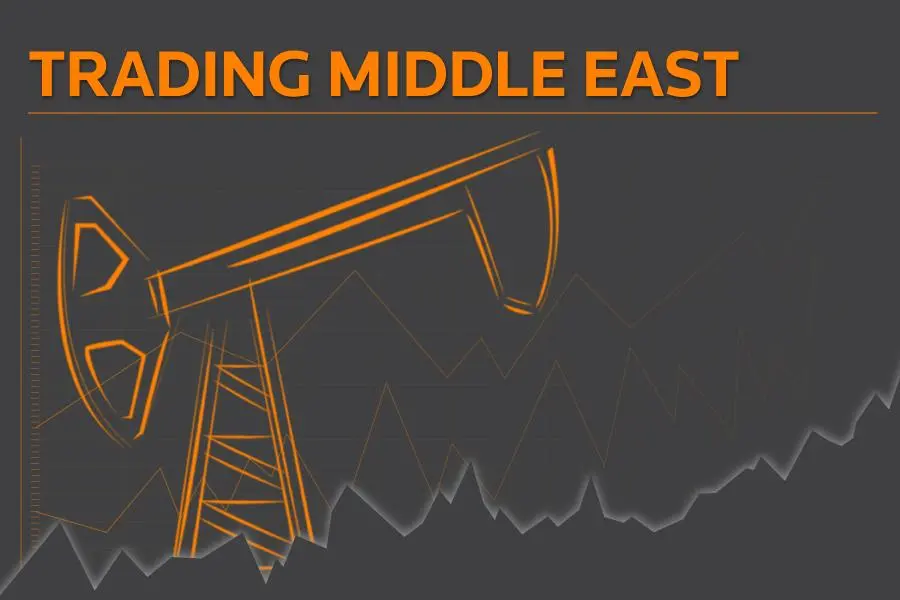PHOTO
Join us today at 12:00 pm UAE time (8:00 GMT) on the Trading Middle East online forum for a live chat with Asma Dakkak, Research Manager at JLL. We will be discussing the outlook for the real estate sector in the region.
Oil prices were on a roll on Wednesday, hitting levels not seen since late 2014. In early trading on Thursday, oil prices remained close to Wednesday’s highs.
Reuters reported on Wednesday that OPEC’s Saudi Arabia would be happy for crude to rise to $80 or even $100, which was seen as a sign that Riyadh will seek no changes to an OPEC supply-cutting deal that was introduced in 2017 to boost prices.
Brent crude oil futures were at $73.79 per barrel at 0028 GMT, up 31 cents, or 0.4 percent, from their last close. In the previous session, Brent marked its highest level since November, 2014 at $73.93 per barrel.
U.S. West Texas Intermediate (WTI) crude futures were up 29 cents, or 0.4 percent, at $68.76 a barrel. WTI on Wednesday hit its strongest since December, 2014 at $68.91 a barrel.
In stocks, MSCI’s broadest index of Asia-Pacific shares outside Japan added 0.15 percent early on Thursday.
Indices on Wall Street overnight were dragged down by softness in sectors such as consumer staples and financials.
The Dow ended down 0.16 percent, while the S&P 500 gained 0.08 percent and the Nasdaq 0.19 percent.
In the Middle East, most stock markets dropped on Wednesday, while the Saudi and Qatari markets added gains.
Dubai’s index dropped 1.4 percent with Emaar Properties losing 3.6 percent, and Dubai Islamic Bank dropped 1.8 percent after reporting a 17 percent rise in quarterly net profit.
Neighbouring Abu Dhabi’s index lost 0.5 percent.
Qatar’s index surged 1.1 percent, as Commercial Bank gained 3.8 percent. It reported a 345 percent year-on-year jump in first-quarter net profit to 405 million riyals ($111 million). The average forecast from analysts polled by Reuters was 329.5 million riyals.
Doha Bank, which is to announce its first-quarter earnings next Sunday, climbed 3.4 percent.
In Saudi Arabia, the index gained 0.6 percent, rising for a fifth straight day. The market is bullish because of expectations for foreign fund inflows in the coming two years as the kingdom joins emerging market indexes.
PetroRabigh was the biggest gainer, surging 7.9 percent to its highest level since October 2014.
Egypt’s blue-chip index lost 0.5 percent as major financial services firm Pioneers Holding plunged 10 percent to 9.58 Egyptian pounds after saying it would increase its capital by 30 percent. New shares will be sold to existing shareholders at 5 pounds per share.
Bahrain’s index was flat, Kuwait’s index edged down 0.1 percent, while Oman’s index dropped 0.4 percent.
In currencies, the dollar was steady against a basket of six major currencies on Thursday, its index was flat at 89.623.
The greenback was steady at 107.250 yen having advanced 0.2 percent the previous day.
Gold prices were unchanged early on Thursday. Spot gold was flat at $1,348.80 per ounce at 0058 GMT, while U.S. gold futures fell 0.1 percent to $1,352 per ounce.
In other news, Egypt’s Finance Minister Amr El Garhy said in a statement on Wednesday that the International Monetary Fund (IMF) expects Egypt's GDP growth to hit 5.2 percent in the current fiscal year that ends in June.
For access to market moving insight, subscribe to the Trading Middle East newsletter by clicking here
Our Standards: The Thomson Reuters Trust Principles
Disclaimer: This article is provided for informational purposes only. The content does not provide tax, legal or investment advice or opinion regarding the suitability, value or profitability of any particular security, portfolio or investment strategy. Read our full disclaimer policy here.
© Trading Middle East 2018




















